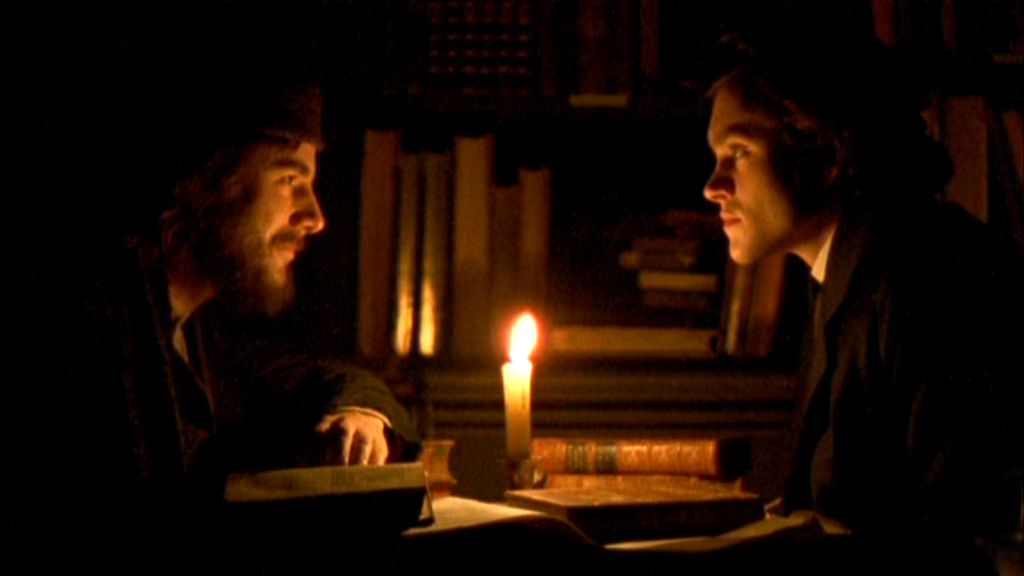 |
| Daniel Deronda comes face to face with the prospect that he may be Jewish in the BBC adaptation of George Eliot's novel |
Fear-related themes are frequently discussed in Pirkei Avot. We learn there of fear of Heaven (1:3) and fear of sin (2:11, 3:11), as well as other types of fear the exact nature of which we must infer from the context in which the mishnah uses the word. For example, we find two references to the relationship between fear and wisdom: (i) "If there is no wisdom, there is no fear -- and if there is no fear there is no wisdom" (3:21) and (ii) fear is listed among the 48 things one needs in order to acquire Torah wisdom (6:6).
Fear
of oneself and of the inability to control the power of one’s ego are central
themes of George Eliot’s novel of the rediscovery of Jewish identity Daniel Deronda (1876), which opens with the line “Let thy chief terror be of thine
own soul”. It is possible to go through the references to fear in Pirkei Avot and see how far they apply to self-fear of this nature.
Does any reader know of any writings of traditional Jewish Sages or modern commentators that tackle the concept of self-fear, either as it applies to Avot or in general? If so, do please get in touch and let me know.